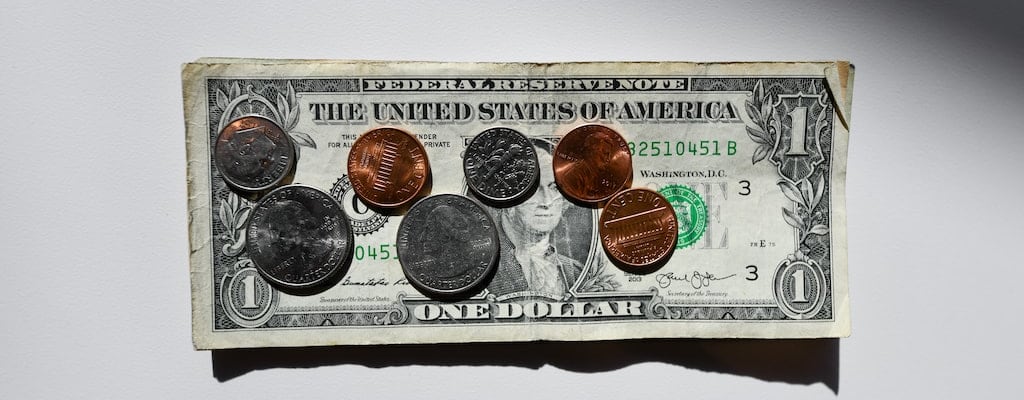not worth a Continental: Idiom Meaning and Origin
What does ‘not worth a Continental’ mean?
The idiom "not worth a Continental" means something is completely valueless or worthless. It originated during the American Revolutionary War when the Continental Congress issued Continentals as currency, which quickly became worthless due to hyperinflation.

Idiom Explorer
The idiom "second-rate" refers to something of inferior quality or standard compared to others in the same category.
The idiom "price of eggs" refers to an insignificant or unimportant matter that is not worth worrying about or discussing in great detail.
The idiom "pretty penny" means a significant or large amount of money. It is often used to emphasize the high cost or value of something.
The idiom "piece of shit" is an offensive expression used informally to describe something or someone as being of very poor quality or value.
The idiomatic phrase *piece of crap* is used to describe something or someone that is of extremely poor quality or value. It implies complete worthlessness or disappointment.
The idiom "penny wise and pound foolish" means being frugal with small expenses while being wasteful with larger ones.
The idiom "pennies on the dollar" means to buy or sell something at a significantly discounted price, usually much lower than its actual value.
The idiom "pay through the nose" means to pay a very high price for something, often more than is considered fair or reasonable.
The idiom "not worth writing home about" means something is not impressive or noteworthy enough to share with others. It suggests a lack of excitement or satisfaction about a particular experience or event.
The idiom "not worth salt" means something or someone is of no value or insignificant. It originates from ancient Rome where salt was highly valued as a valuable commodity used for trade and payment.
The Curious Meaning
The idiom "not worth a dime" is another expression used to convey that something has little or no value. The phrase originated in the United States in the early 20th century, when a dime was a common coin in circulation. The use of "dime" in this idiom emphasizes the insignificance and low worth of the object or idea being described.
The idiom "not worth a brass farthing" has similar connotations to "not worth a Continental." It suggests that something is of little or no value. The phrase "brass farthing" refers to a small, low-value coin made of brass that was used in Britain until the mid-19th century. It is often used to describe something that is considered worthless or insignificant.
"not worth salt" is another idiom related to the concept of worthlessness. It indicates that something has little or no value. The phrase may have originated from the Roman era when salt was regarded as a valuable commodity. In ancient times, soldiers were sometimes paid with salt, giving rise to the phrase "worth one's salt" to describe someone who deserved their pay. Therefore, if something is "not worth salt," it implies that it lacks value or significance.
Similarly, the idiom "not worth a whistle" signifies that something is considered to have no worth or value. The phrase may have originated from the idea that a whistle is a simple and inexpensive object, suggesting that something is of no more value than such an item. It is often used to dismiss or downplay the importance or worth of something.
"not worth a plug nickel" is yet another idiom that conveys the idea of something lacking value or worth. The term "nickel" refers to a five-cent coin, and a "plug nickel" is a colloquial term for a counterfeit or worthless nickel. Therefore, if something is "not worth a plug nickel," it is regarded as having no value or worth.
All of these idioms, including "not worth a Continental," share a common theme of worthlessness and insignificance. They are used to emphasize the lack of value or importance of something, whether it be an object, idea, or concept.
It is important to note that these idioms are figurative expressions and should not be taken literally. They serve as colorful and impactful ways to describe the perceived lack of value in something.
As an editor for HubSpot, it is your responsibility to ensure that articles are clear, concise, and effective. By adhering to AP style guidelines and following the given rules, you can improve the coherence, readability, and overall impact of the content. Your expertise in editing allows you to make strategic changes that enhance clarity, structure, and style.
When editing articles, one of your primary goals is to ensure that the content gets straight to the point. By removing transitional phrases and unnecessary introductory or summary paragraphs, you can streamline the flow of the article and improve its overall readability.
In addition to these structural changes, you also focus on using short sentences and simple words and phrasing. This approach helps to make the content more accessible to a wide range of readers and enhances its conversational style.
Furthermore, you strive to employ a friendly and informal tone throughout the article. This helps to engage readers and make the content feel more relatable and approachable. It is important to vary the language in each paragraph, avoiding the repetition of phrases and using active voice whenever possible to maintain reader interest.
As you edit the article about the idiom "not worth a Continental," you will not only improve its clarity, structure, and style but also incorporate information about related idioms such as "not worth a dime," "not worth a brass farthing," "not worth salt," "not worth a whistle," and "not worth a plug nickel." The inclusion of these idioms will further enhance the depth and richness of the content, providing readers with a comprehensive understanding of the topic.
Through your careful editing and attention to detail, you can transform the original article into a well-crafted piece that effectively communicates the meaning and significance of the idiom "not worth a Continental," while also incorporating information about related idioms in a natural and seamless manner.
Example usage
1. He offered to sell me his old car, but it was not worth a Continental. The car was in terrible condition and would require too many expensive repairs.
2. The hotel room was very small and not worth a Continental. It was uncomfortable and lacked basic amenities.
3. I paid a lot of money for that restaurant meal, but it was not worth a Continental. The food was overcooked and tasteless.
More "Value" idioms



